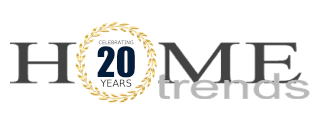 Text by Kathy Wiebe
Text by Kathy Wiebe
You’ve found your dream home, the seller has accepted your offer, your loan has been approved and you’re eager to move into your new home. However before you get the key, there’s one more step—the closing. Also called the settlement, the closing is the process of passing ownership of property from seller to buyer. And as many buyers can attest to, it can be bewildering.
As a buyer, you will sign what seems like endless piles of documents and will have to present a sizeable cheque for the down payment and various closing costs. It’s the fees associated with the closing that many times remain a mystery to many buyers who may simply hand over thousands of dollars without really knowing what they are paying for. As a responsible buyer, you should be familiar with these costs that are both mortgage-related and government imposed.
Although many of the fees may vary by locality, here are some common fees:
Appraisal Fee: This fee pays for the appraisal of the property. You may already have paid this fee at the beginning of your loan application process.
Credit Report Fee: This fee covers the cost of the credit report requested by the lender. This too may already have been paid when you applied for your loan.
Loan Origination Fee: This fee covers the lender’s loan-processing costs. The fee is typically one percent of the total mortgage.
Loan Discount: You will pay this one-time charge if you have chosen to pay points to lower your interest rate. Each point you purchase equals one percent of the total loan.
Title Insurance Fees: These fees generally include costs for the title search, title examination, title insurance, document preparation and other miscellaneous title fees.
PMI Premium: If you buy a home with a low down payment, a lender usually requires that you pay a fee for mortgage insurance. This fee protects the lender against loss due to foreclosure. Once a new owner has 20 percent equity in their home, however, he or she can normally apply to eliminate this insurance.
Prepaid Interest Fee: This fee covers the interest payment from the date you purchase the home to the date of your first mortgage payment. Generally, if you buy a home early in the month, the prepaid interest fee will be substantially higher than if you buy it towards the end of the month.
Escrow Accounts: In locations where escrow accounts are common, a mortgage lender will usually start an account that holds funds for future annual property taxes and home insurance. At least one year and two months worth of homeowner’s insurance premiums will be collected in advance. In addition, taxes equaling approximately two months in excess of the number of months that have elapsed in the year are paid at closing. (If 6 months have passed, 8 months of taxes will be collected.)
Recording Fees and transfer taxes: This expense is charged by most provinces for recording the purchase documents and transferring ownership of the property. Make sure you consult a real estate professional in your area to find out which fees—and how much—you will be expected to pay during the closing of your prospective home.
Latest posts by Canadian Home Trends (see all)
- Dining Room Design Tips - July 2, 2025
- Practical Luxury in Forest Grove - July 2, 2025
- The Hidden Value of Great Design - July 2, 2025






